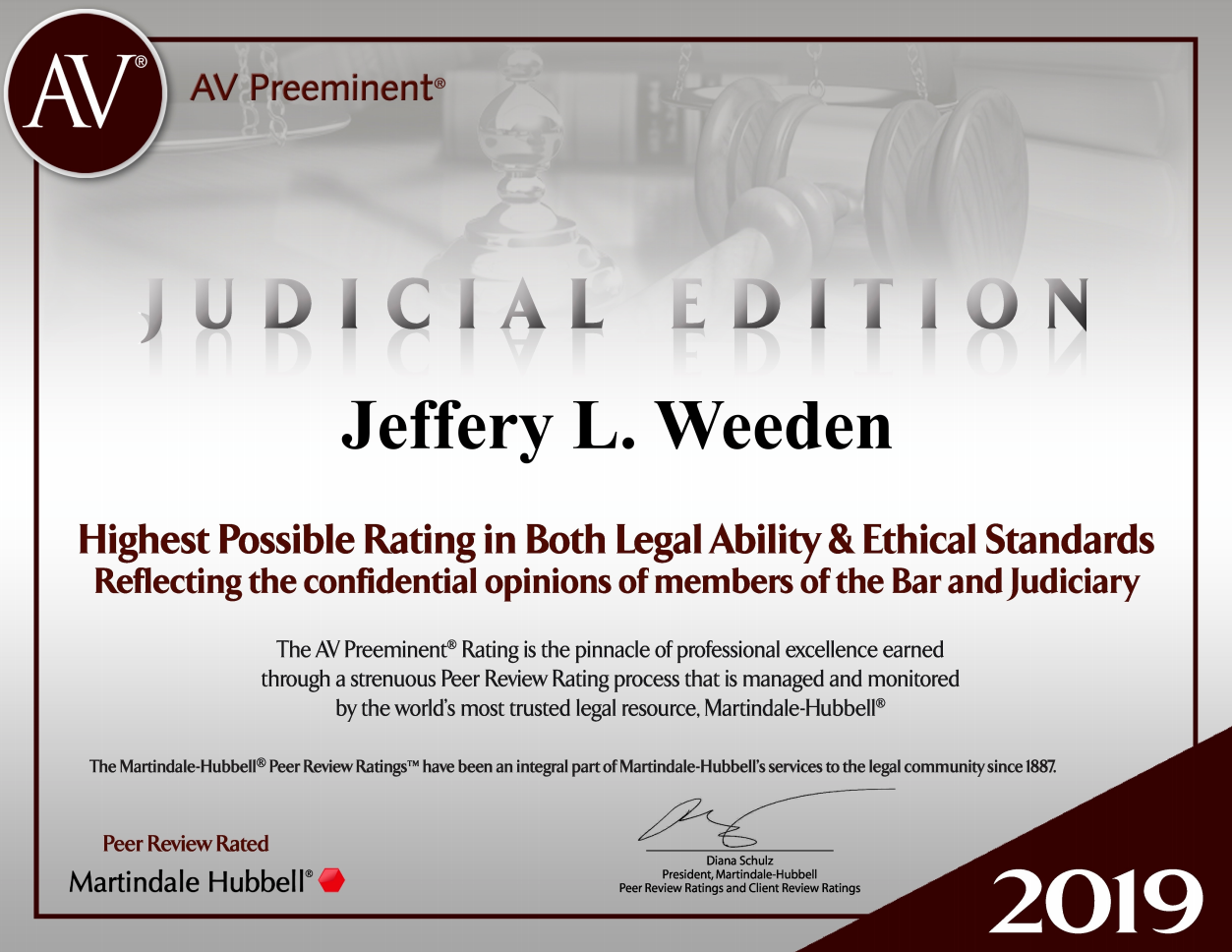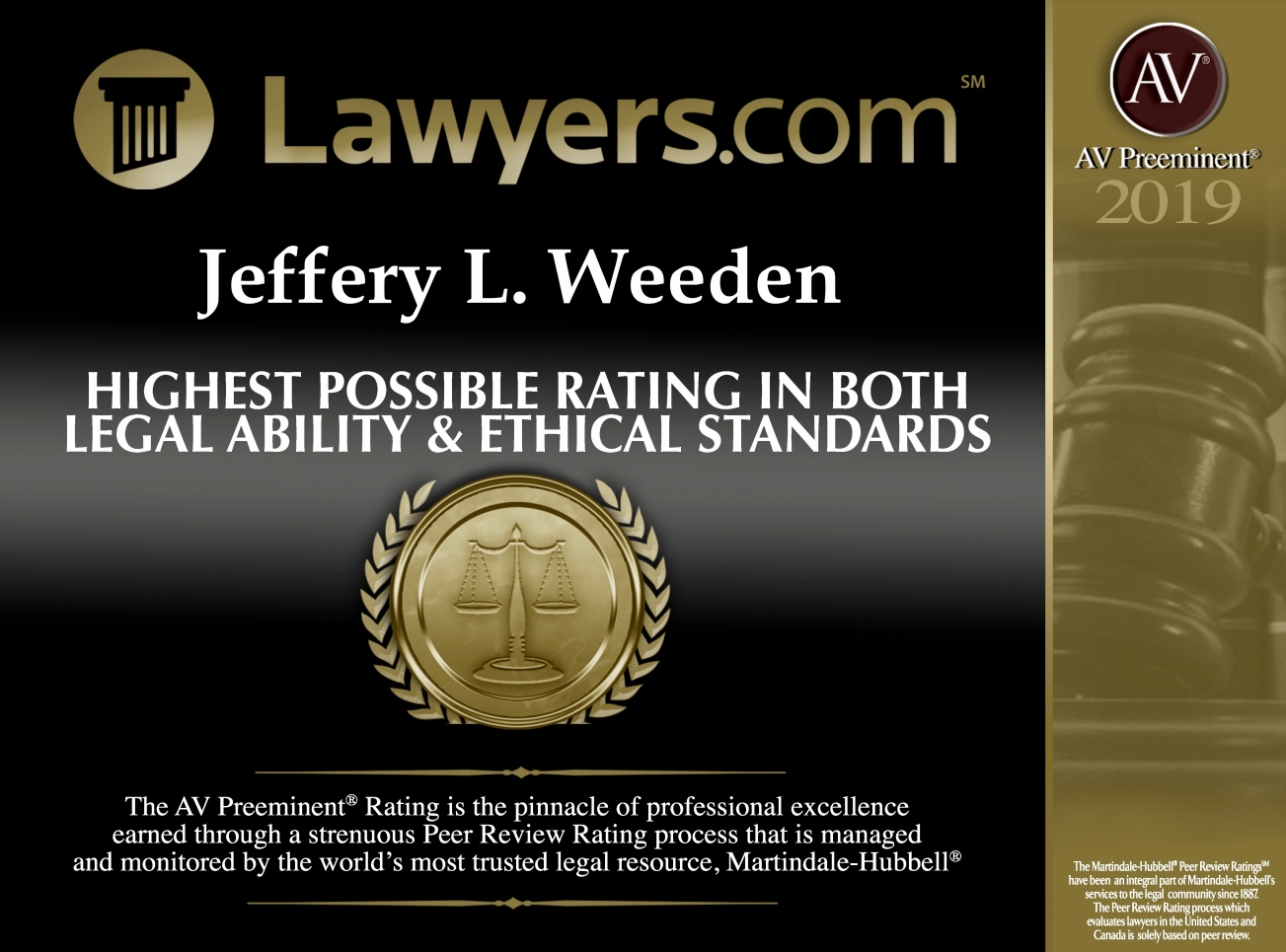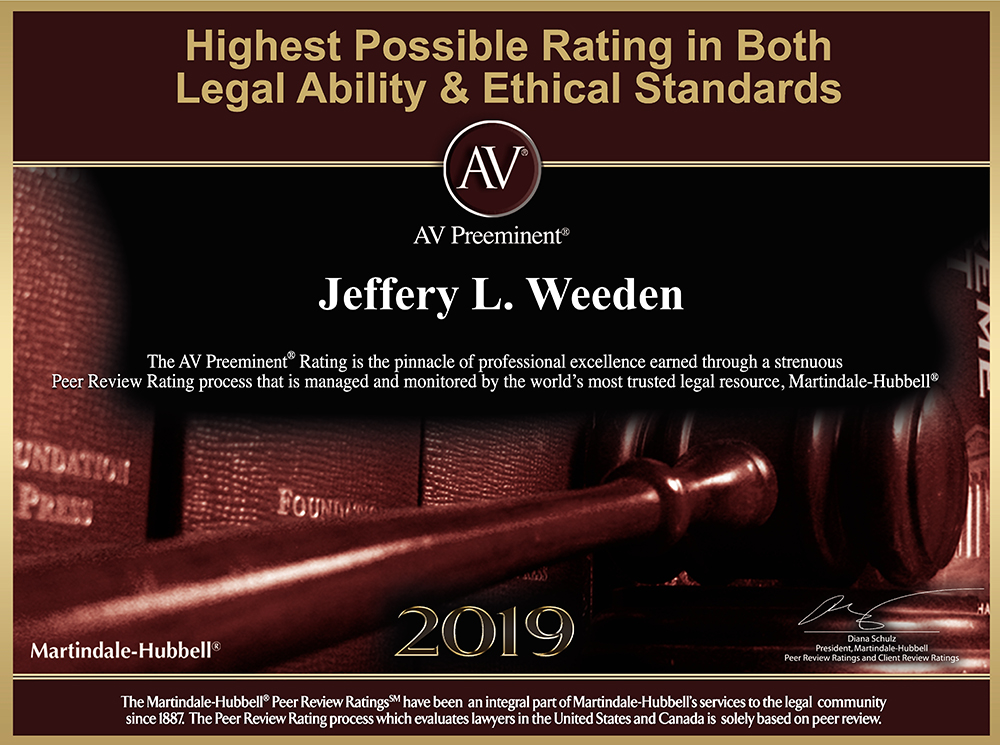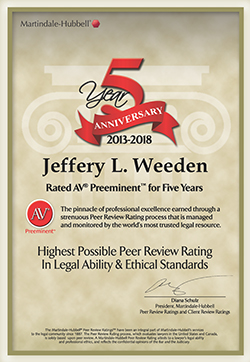Denver Criminally Negligent Homicide Attorney

Murder is one of the most serious crimes a person can face in Colorado. Of course, the intent to kill is not present in every homicide, but it is not uncommon for Colorado courts to try to pursue a negligent homicide charge after a tragic accident.
Criminal charges can make an already overwhelming situation even worse, especially when facing a felony. Felony convictions can permanently change your life for the worse. Unfortunately, criminally negligent homicide is a felony in Colorado. That is why it is so important for those who face a criminally negligent homicide charge to obtain the help of an experienced Colorado criminal defense lawyer.
At WeedenLaw, our criminal defense attorneys know the severe consequences of a negligent homicide conviction and can help you protect your rights and fight for your freedom. Call us at (720) 307-4330 to schedule a free consultation with an experienced Denver criminally negligent homicide attorney today.
What is Criminally Negligent Homicide?
Criminally negligent homicide is when a person causes the death of another by criminal
negligence. As such, negligent homicides are often not considered violent crimes. Violent crimes indicate that a person intentionally engaged in such conduct knowing, expecting, or intending to harm another individual. Unlike other common violent crimes in Colorado such as first or second-degree murder, there’s often no intention of harm or violence. There is only an unfortunate death and an act of criminal negligence that led to it.
CRS § 18-3-105
The language of the law regarding criminally negligent homicide is short and simple. Under C.R.S 18-3-105, “Any person who causes the death of another person by conduct amounting to criminal negligence commits criminally negligent homicide which is a Class 5 felony.”
The key here is criminal negligence. Criminal negligence is the failure to perceive a substantial and unjustifiable risk of harm or death that a reasonable person would have been aware of in the same situation. More specifically, Colorado law defines criminal negligence as the gross deviation from the standard of care that a reasonable person would exercise. There is no strict definition of gross deviation. It’s often up to a jury to decide the line between a tragic accident and criminal negligence. As criminal negligence is often open to interpretation, working with an experienced Denver criminal defense attorney like Jeff Weeden is essential to your case.
Manslaughter vs. Negligent Homicide
Under Colorado law, manslaughter and negligent homicide are similar crimes with a few key differences. Criminal negligent homicide charges stem from negligence, while manslaughter charges involve reckless actions. Manslaughter is a Class 4 felony, so the punishment is a little more severe than negligent homicide. Someone can be charged with manslaughter if their reckless actions lead to the death of another person or if they intentionally cause or aid another person to commit suicide. The person may not have intended to harm another person, but they were aware their actions had the ability to cause bodily harm and proceeded anyway. This is often known as involuntary manslaughter.
The law makes special exceptions for medical caregivers. If a terminally ill patient and his or her agent consent to palliative care, the medical caregiver cannot be found guilty of manslaughter. Normally, withholding life-saving care can be seen as a reckless action or negligence that results in death. Some terminally ill patients have a DNR (do not resuscitate) order, which prevents medical caregivers from providing life-saving measures.
Is Vehicular Homicide the Same As Criminally Negligent Homicide?
In a vehicular homicide case, the driver must have sufficient physical control of the vehicle and operate it in a reckless manner. This means a person commits vehicular homicide when they operate a motor vehicle in a reckless manner and causes the death of another person. A common example of this is texting and driving. Driving under the influence of one or more drugs and/or alcohol can also result in a vehicular homicide charge.
Colorado vehicular homicide charges are punished more severely than criminally negligent homicide. Depending on the details of the accident, this can be either a Class 3 or Class 4 felony.

Common Examples of Criminally Negligent Homicide
The line between an accident and criminal actions is often a little blurry. One of the most common and tragic examples of this is a child left in a car on a hot day. Any deviation from a normal schedule can result in a child being left in a dangerous situation. Many parents often realize their mistake and get to the child before any harm is done. In other cases, unfortunately, the temperatures climb and the child dies of heatstroke. This is a heartbreaking and devastating accident, but is it criminally negligent homicide? Some courts would say yes.
Other examples of criminally negligent homicide can include:
- Firing a gun into the air
- Waiting too long to call 911
- Leaving a loaded gun in reach of a child
Is Negligent Homicide a Felony?
Criminally negligent homicide is a Class 5 felony in the state of Colorado. Once someone is convicted of a felony charge, his or her life will be changed forever. A Class 5 felony may only be two steps above a misdemeanor charge in Colorado, but a felony sentence can have a negative impact that follows you around for the rest of your life.
What are the Penalties for Committing Criminally Negligent Homicide in Colorado?
The penalties for a criminally negligent homicide are often much more far-reaching than just jail time and fines. As mentioned above, criminally negligent homicide is charged as a Class 5 felony in the state of Colorado. Felony charges have a major impact on your life when it comes to housing, employment, and education. For example, a felony conviction will show up on a background check, which means you’ll likely have to explain the charges to future employers and landlords. You’ll also be barred from obtaining certain professional licenses.
Convicted felons lose certain constitutional rights as well. For instance, convicted felons can never own a firearm in the state of Colorado unless they receive a special pardon. Convicted felons also lose the right to vote while in prison.
Criminally Negligent Homicide Sentence
A Class 5 felony is punishable by up to three years in prison and a fine of up to $100,000. After the prison sentence, the defendant will be subjected to two years of mandatory parole. This is not to mention the personal impact this may have on your life. Consider this: a lengthy prison sentence takes you away from your loved ones, causes a large gap in your employment history, changes others’ perceptions of you, and much more.
How a Denver Criminal Defense Lawyer Can Help
If you or a loved one is accused of a Colorado criminally negligent homicide, it’s crucial to speak to a Colorado criminal defense attorney as soon as possible. A competent Colorado defense attorney can ensure you understand the charges you are facing and provide all the legal advice you need for a positive outcome in your case. With the attorneys from WeedenLaw by your side, you can be sure that we will fight aggressively for your future.
Jeff Weeden is an award-winning aggressive criminal defense attorney who is ready to represent you on your day in court. He and his dedicated legal staff will conduct their own investigation into your case and gather the evidence needed to support your defense theory. The sooner we can begin working on your case, the sooner we can begin crafting the best defense strategy for you.

Call the Criminally Negligent Homicide Defense Attorneys at WeedenLaw ASAP
At WeedenLaw, citizens all over Colorado have trusted us to provide aggressive defense strategies for nearly two decades. That’s because Jeff Weeden has the necessary knowledge and experience to get you the best possible outcome in your criminal case. If you’re facing criminal charges in Colorado, trust the attorneys at WeedenLaw to defend you. Our Denver attorneys are available 24/7 to begin working on your case. Call us today at (720) 307-4330 or reach out to us online to schedule a free consultation.
































